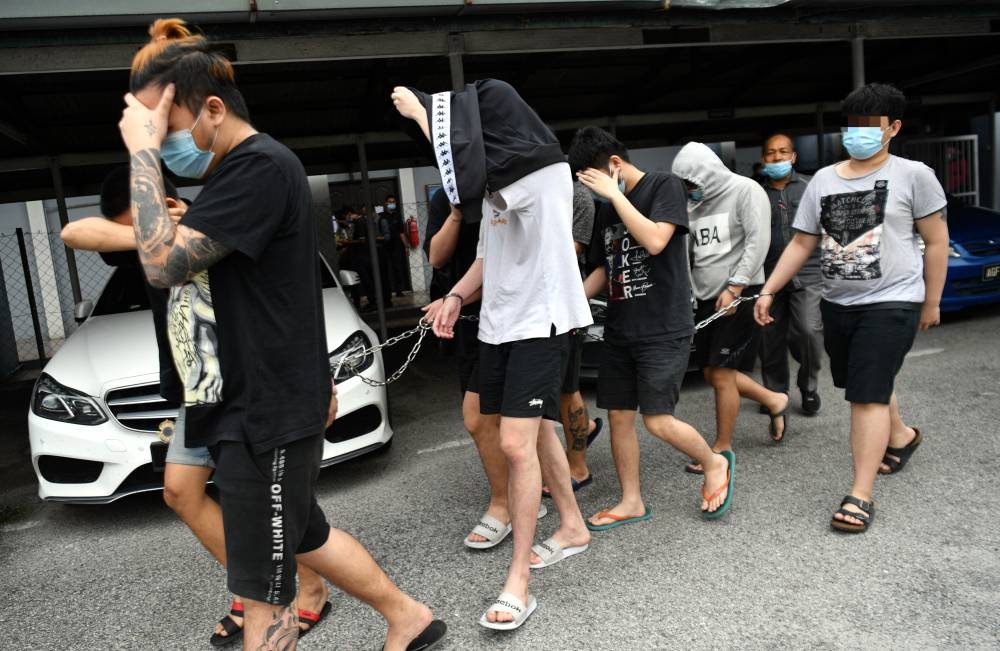Amend Poca to enable cops to curb commercial crime effectively, say NGOs
07 Feb 2023 11:27pm

Individuals detained under Poca. - Bernama pic
The NGOs -- Malaysia International Humanitarian Organisation (MHO) and Malaysian Community Crime Care (MCCC) -- hope that stricter laws will help the police ensure that those involved in commercial crime activities receive the punishment they deserve.
MHO secretary-general Datuk Hishamuddin Hashim said currently, the police are facing difficulties in obtaining evidence to bring perpetrators to justice, such as involving Section 4 of the Act, which touches on remand orders and detention periods for individuals arrested under POCA.
"It’s actually difficult for the police to track down the masterminds because these syndicates use proxies or nominees who don’t have any assets or don’t care about facing risks or civil suits. So that’s why when you want to make an arrest or money trail, it’s difficult to prove up to the main criminals.
"From the investigation point of view, the law that exists today does not seem to be in favour of PDRM, thus affecting the victims. Unlike drug cases, where there are Special Prevention Measures, this commercial crime is quite slow; perhaps related to the Evidence Act 1950,” he said.
He told reporters this after paying a courtesy call to Bukit Aman Commercial Crime Investigation Department deputy director Datuk Muhammed Hasbullah Ali and presenting 200 police reports by Zutello investment scam victims here today.
Hishamuddin further said that the time has come for the country to have stricter laws to prevent more people from falling victim to these syndicates.
Meanwhile, MCCC president Tan Sri Musa Hassan, who was present during the courtesy visit, said he would extend the matter to Home Minister Datuk Seri Saifuddin Nasution Ismail and Attorney-General (AG) Tan Sri Idrus Harun.
Asked why many scam cases ended with civil suits, Musa said sometimes, it was due to a lack of evidence.
"Police only conducted the investigations, and whether the case will be charged in court is at the AG’s discretion. Sometimes, when it reaches the AG, it is found that there is a lack of solid evidence, and the case fails to be brought to court.
"That is why we need preventive laws to bring these syndicates to justice because their leaders are not directly involved. The victims also never met with the syndicates’ masterminds,” he said.
In April last year, the Federal Court ruled that the entire Section 4 of POCA 1959 was unconstitutional and advised that all arrests made by PDRM under the Act be postponed until a date to be announced later. - Bernama











